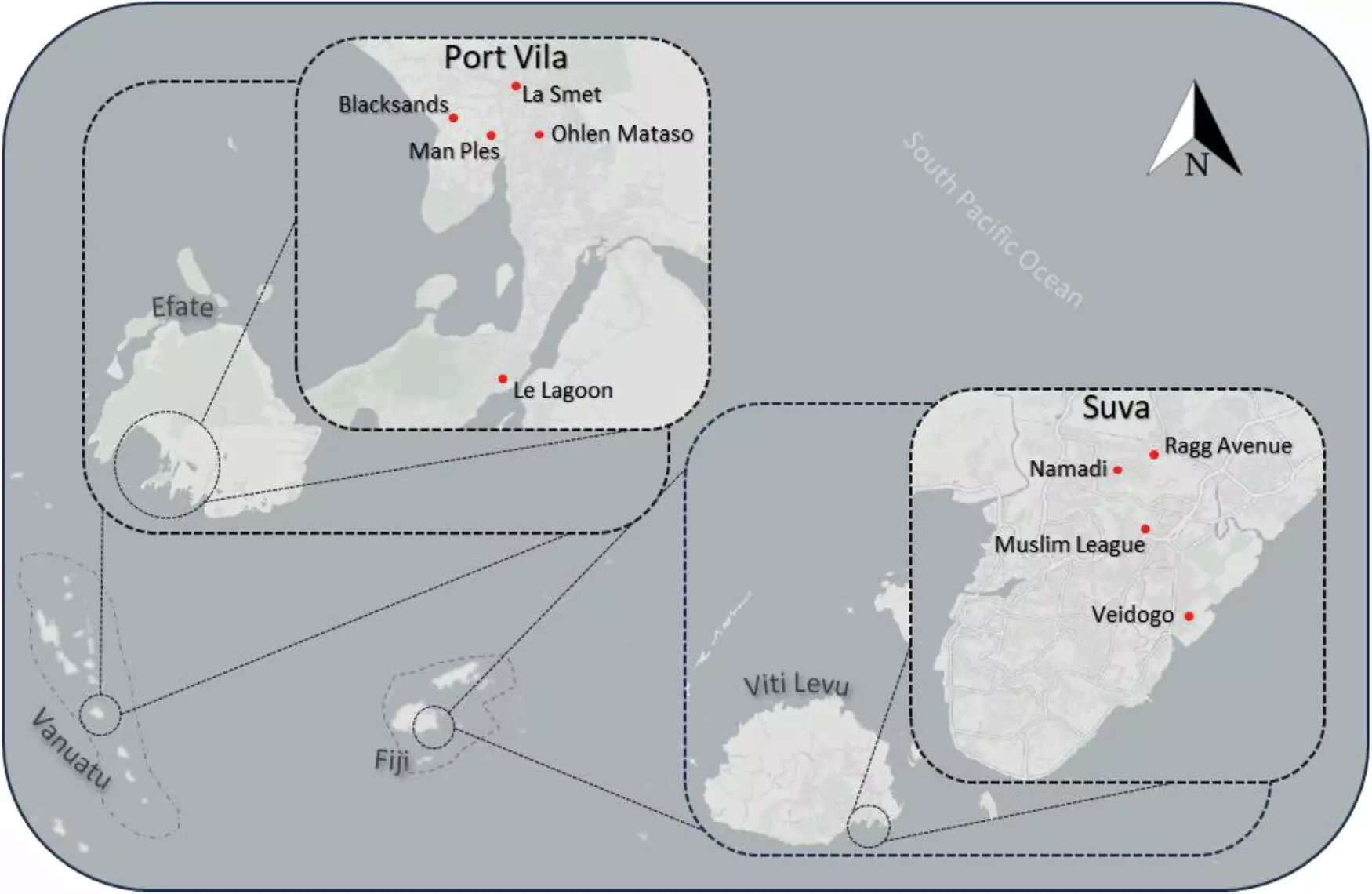While the Pacific Islands are often depicted as idyllic locales with stunning beaches and lush landscapes, the reality for many residents is far from tranquil. A significant public health crisis lurks beneath the surface, affecting hundreds of thousands who reside in informal urban settlements. Nearly half a million individuals across these nations live without essential sanitation services, dramatically impacting their health, education, and economic prospects. Vulnerable groups, such as women, children, and elderly individuals, bear the brunt of these challenges, highlighting a pressing need for comprehensive solutions.
Recent research published in the journal npj Clean Water sheds light on the severity of sanitation issues in the Pacific Islands, particularly in Fiji and Vanuatu. Collaborating with the University of the South Pacific, experts conducted a thorough examination of households in nine informal urban settlements situated in the capitals, Suva and Port Vila. The findings reveal the stark reality: many families rely on inadequately constructed sanitation systems, if they have access to any at all. Despite the presence of piped water, a staggering percentage of households—between 56% and 100%—resort to unsafe methods for managing human waste, primarily relying on rudimentary dry pits or cesspits devoid of plumbing or running water.
These informal settlements often arise when individuals occupy unplanned lands due to the unaffordable housing crisis. Consequently, basic amenities such as sewage systems, reliable electricity, and waste collection services remain conspicuously absent. Problems are exacerbated during adverse weather conditions, as one-third of households lose access to functional sanitation facilities during heavy rains or severe storms, like cyclones or floods. Notably, dry pit systems are disproportionately vulnerable, with up to eight times higher odds of suffering damage during climatic events compared to their water-based counterparts.
As the intensity and frequency of climate events increase, residents encounter additional hurdles in managing waste effectively. Many lack viable options for safely disposing of accumulated sludge from septic tanks and latrines, resulting in hazardous practices such as dumping waste in open areas or local waterways. This dire situation not only contaminates drinking water sources but also poses a significant risk to public health.
The consequences of such inadequate sanitation systems are severe. Poor waste management fosters the spread of infectious diseases, including diarrhea and intestinal worms, creating a vicious cycle that devastates vulnerable populations. Improved water and sanitation infrastructures have documented success rates in reducing child mortality and diseases associated with inadequate hygiene practices. However, despite global commitments to enhance sanitation services, grim statistics reveal that many households in informal urban settlements still lack adequate sanitation, detracting from broader development goals.
Solving the sanitation crisis in the Pacific Islands requires more than just building toilets. A holistic framework must be developed to manage sanitation across all stages—from waste collection to treatment and final disposal. This integrated approach calls for the establishment of a service chain that is robust, reliable, and capable of withstanding natural disasters. Empowering local communities, enhancing the expertise of service providers, and fostering ownership are critical for ensuring long-term sustainability and effectiveness of sanitation systems.
However, this is not without its complications. The precarious nature of land tenure in informal settlements creates substantial challenges for service providers and residents alike. Lack of secure property rights often translates to limited access to adequate infrastructure and services, complicating the practical aspects of waste management.
As urbanization continues to escalate across the Pacific Islands, innovative and tailored solutions for managing sanitation in informal settlements must be prioritized. The sixth Sustainable Development Goal emphasizes the importance of clean water and sanitation for all, underscoring the need for urgent action. Addressing this sanitation dilemma is not solely a matter of health; it is a fundamental issue of dignity and resilience for communities that stand at the front lines of a rapidly changing climate.
To navigate this complex crisis effectively, collaboration among national governments, local authorities, NGOs, and community members is essential. Finding practical, context-sensitive solutions will be key to promoting not only health and well-being but also supporting livelihoods and instilling a sense of dignity among the most vulnerable. It is time to recognize the dire needs of the Pacific Islands and take decisive steps to ensure that even in paradise, the basic human rights to sanitation and health are upheld.

